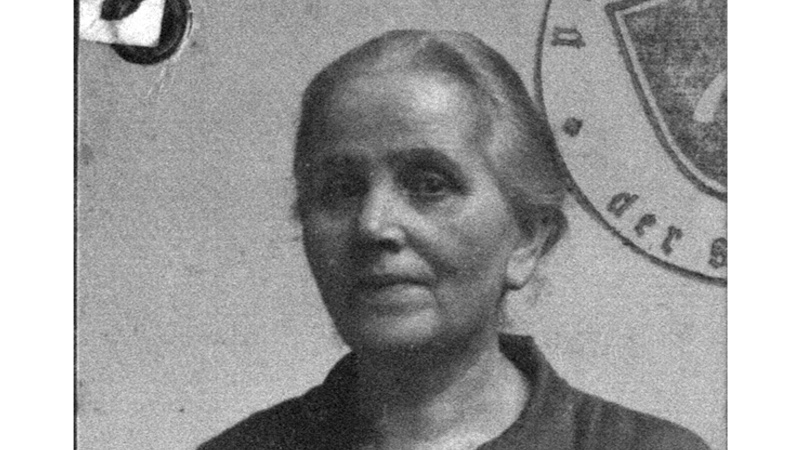
In 1937, for the last time, the “Jew” Lina Töpfer received a peddler’s license, with permission to sell stockings and silk goods in the town district.
Lina Töpfer, née Stiebel, was born in 1885 in Allendorf an der Lumda in Upper Hesse. Her father, Joseph Stiebel. was a cattle dealer. Her first husband, Hösch, died, and she subsequently married Robert Töpfer, an “Aryan,” who was a municipal employee in Coburg. She had two sons from her first marriage and one from her second marriage. Two of her sons were sent to forced labor camps, and two of her sisters died in concentration camps.
The family was not wealthy, but Lina Töpfer made a living and was proud of her trade. She enjoyed selling her textiles in at the markets. “Mrs. Töpfer was always healthy and hardworking,” a colleague later recalled. She was able to keep working until Kristallnacht in November 1938, when she and all the other Jewish families were arrested, herded through the city, and detained.
Mrs. Töpfer was already 60 years old when the war ended. She tried to make a new start with a textile business in July 1945, but had to give it up again in 1950.
A painful and difficult tug-of-war ensued with the postwar bureaucracy, over the causes of her failing health and her claim, as a victim of racial persecution, for state compensation. An expert opinion from the health office in 1953 certified that she was under “constant mental pressure due to fear for her life,” but they recognized her health impairment only from 1942 onward.
This struggle lasted for years; Lina Töpfer had to keep proving the “damage caused by National Socialism” repeatedly until her death.
Text und Copyright: Prof. Dr. Gaby Franger
